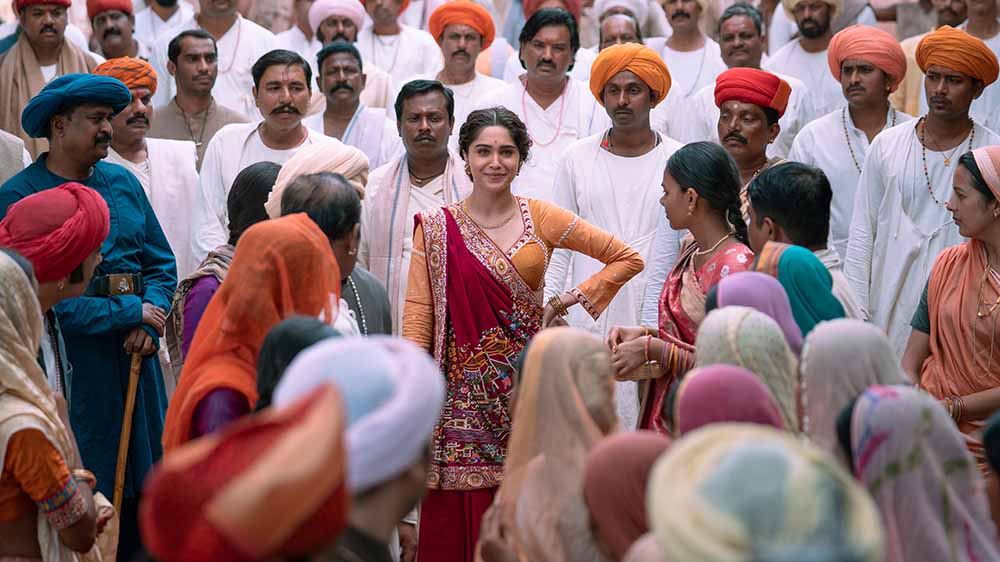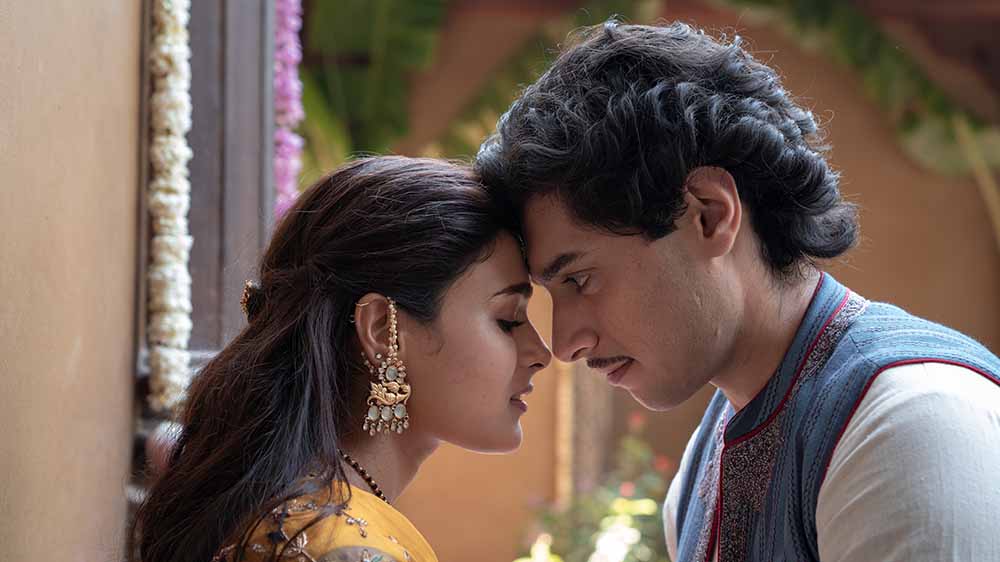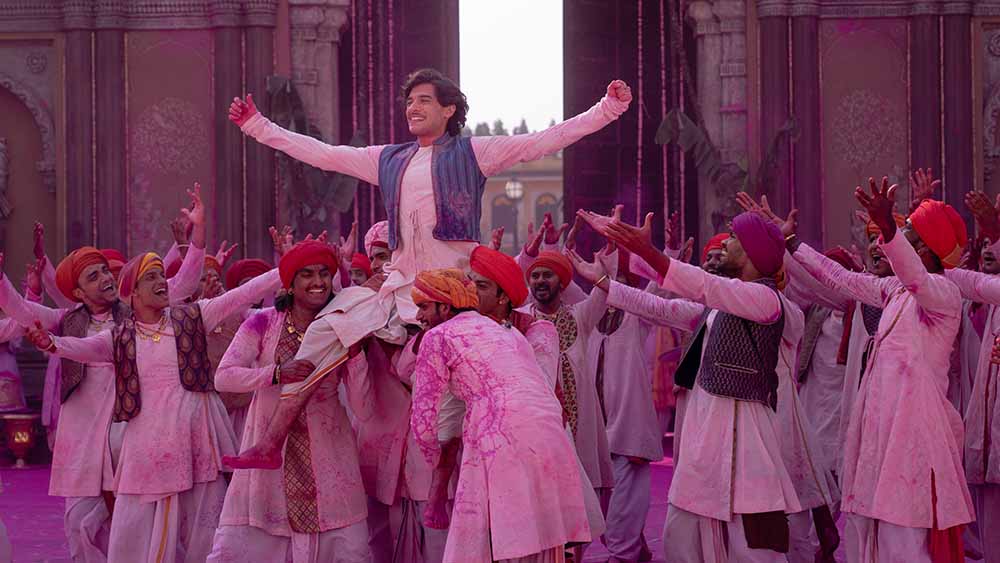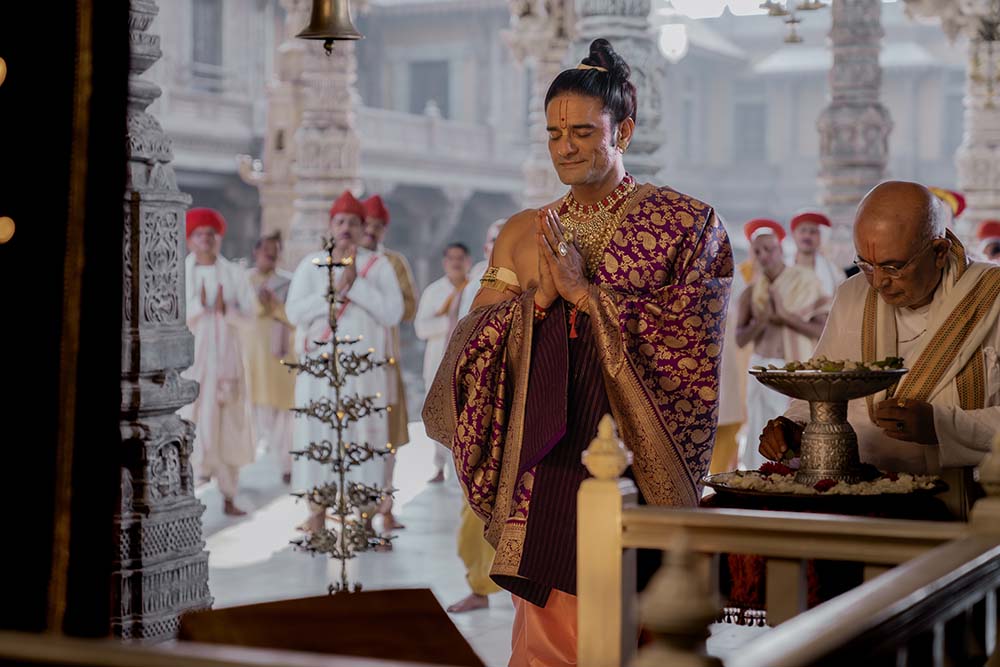Netflix and Yash Raj Films have come together to present ‘Maharaj,’ a gripping period drama that transports us back to 1862 India, a time of social upheaval and burgeoning reform. Directed by Siddharth P Malhotra, this film is an evocative portrayal of the real-life David vs. Goliath story of Karsandas Mulji, a journalist whose relentless pursuit of truth and justice pitted him against a revered leader in a landmark legal battle.

From the opening scenes, Maharaj" immerses viewers to 19th-century India, a nation on the cusp of significant social change. The meticulous set design and period-appropriate costumes immediately draw us into the era, creating a vivid backdrop for the unfolding drama.
Junaid Khan makes a compelling debut as Karsandas Mulji, delivering a nuanced performance that captures both the vulnerability and tenacity of the young journalist. Mulji’s character is skilfully crafted, showcasing his transformation from an earnest writer to a fearless advocate for social reform. Khan's portrayal brings an emotional depth to the character, making his journey both relatable and inspiring.
Jaideep Ahlawat stands out as the formidable antagonist, embodying the power and influence of the era's entrenched social hierarchy. Ahlawat’s performance mesmerises you with his true adaptability as an actor as he plays a revered leader in the period drama. His portrayal is both commanding and nuanced, presenting a figure who is as complex as he is imposing.

The women in ‘Maharaj’ truly shine, both in their character portrayals and the performances by the actors who bring them to life. Shalini Pandey and Sharvari, though in supporting roles, add significant weight to the narrative. Pandey’s performance is heartfelt and provides a strong emotional anchor to the story. Be it Pandey’s innocent yet moving portrayal of Kishori, or Sharvari’s playful yet strong flair as Mulji’s confidante, the women add substance to their roles as well as the storyline. Sharvari, in her special appearance, delivers a standout performance that is both impactful and memorable. She brings a nuanced strength to her role, capturing the essence of a woman who navigates the complexities of her time with grace and determination. Her performance is a testament to her versatility and ability to leave a lasting impression.

The film's screenplay is adept at weaving historical facts with dramatic flair, maintaining a fine balance between entertainment and education. The dialogue is sharp and reflective of the period, yet accessible enough to resonate with contemporary audiences. The legal battle at the heart of ‘Maharaj’ is meticulously detailed, capturing the tension and high stakes of the courtroom drama.
Siddharth P Malhotra's direction ensures that ‘Maharaj’ is more than just a historical recount; it’s a powerful commentary on the timeless struggle for justice and equality. The film’s pacing is deliberate, allowing for a slow build-up of tension that culminates in a climactic courtroom showdown. The cinematography captures the grandeur of 19th-century India while also honing in on the intimate moments of personal struggle and triumph.

One of the film’s most poignant aspects is its exploration of the power of the press and the written word. In an age where information is instantaneous, ‘Maharaj’ serves as a reminder of the crucial role that journalism has played in shaping society.
‘Maharaj’ is not just a film for history enthusiasts but for anyone who appreciates a well-told story of human resilience and courage. It’s a testament to the enduring spirit of those who dare to challenge the status quo and fight for a better future.
‘Maharaj’ is a must-watch — a powerful blend of historical drama and inspirational storytelling that will leave a lasting impression long after the screen fades to black. Out now on Netflix, it promises to be a cinematic experience that celebrates the human spirit.